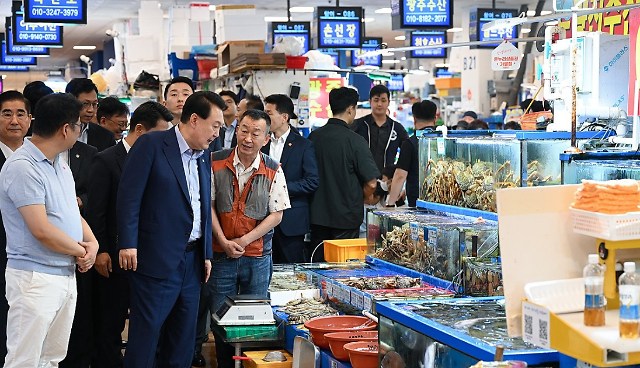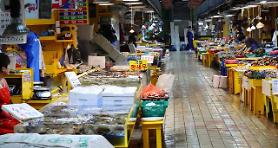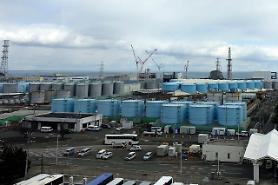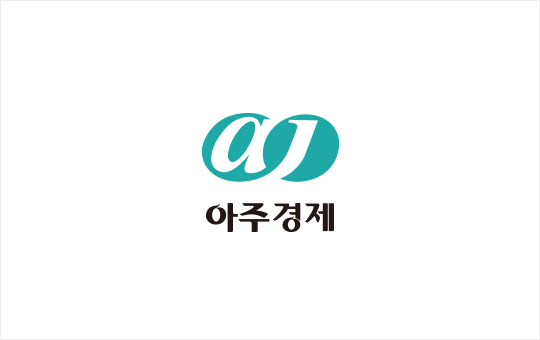
Despite South Korea's seafood market entering one of its busiest seasons at the end of the summer with seasonal shrimps and spotted sardines, various media reports showed that popular seafood marketplaces in Seoul and other parts of the country saw very few customers during the last week of August, a few days after Japan discharged contaminated water into the ocean on August 24. The contaminated water was discharged after it was used for cooling down reactors that melted down when the Fukushima nuclear disaster took place in 2011.
South Korean President Yoon Suk-yeol said during an emergency meeting that was designed to discuss possible key solutions for boosting the country's economy that a total of 144 billion won will be injected by the end of 2023 to stimulate the consumption of seafood. Government subsidies will be provided for various kinds of fish and discount vouchers will be distributed through online shopping malls. Discount rates will also be increased from 20 percent to 30 percent.
The government will spend up to two billion won per week until the last week of September to publish smartphone shopping discount vouchers that can only be used for purchasing seafood products. The vouchers can only be used by October 13.
However, some industry experts are expressing doubts over the government's measures to boost the consumption of seafood as recent surveys showed that an average of about 70 percent of South Koreans feel that it is not safe to eat seafood when Japan releases contaminated water into the sea. Despite many people opposing Japan's decision to release water that contains radioactive materials into the ocean, the Yoon Suk-yeol administration continued to defend the neighboring country. Seoul even created video advertisements to persuade South Koreans that the release of Tokyo's contaminated water is scientifically proven. During the meeting, Yoon said that people's concerns over the safety of eating seafood are based on "groundless rumors and propaganda materials."
Data released by South Korea's state statistical information service on August 27 showed that the monthly average amount of money spent on purchasing fresh seafood products in the second quarter of 2023 was 17,000 won ($12.84), down 9.8 percent compared to the same period in 2022. The term fresh seafood product refers to seafood that is uncooked or unprocessed.
The general consumption of fresh seafood products in South Korea started to decrease in 1Q 2022 when the Japanese government announced that it would one day have to discharge contaminated cooling water from the Fukushima nuclear disaster site into the sea. The consumption turned into a minus in 1Q 2022, down 4.2 percent on-year. The decrease in consumption continued to drop in 2Q 2022 (-6.5 percent), 3Q 2022 (-10.2 percent), 4Q 2022 (-7.9 percent), 1Q 2023 (-6.6 percent), and 2Q 2023 (-9.8 percent).
Contaminated water, referred to by Japan as "treated water," is subterranean water that came in contact with Fukushima's reactor that was melted down and has not yet been retrieved. The water is collected and treated through a process described as the advanced liquid-processing system (ALPS) and stored in more than 1,000 stainless steel canisters on the abandoned nuclear power plant site.
The water that was used as a coolant for the reactor contains radioactive elements including cesium-137, strontium-90, hydrogen-3 known as tritium, and iodine-131. The ALPS process removes 62 of the 64 radioactive elements to bring the concentration level of radionuclides below Japan's regulatory limits set in 2022. The ALPS process does not remove carbon-14 and tritium. Japan started discharging the treated water into the Pacific Ocean on August 24, 2023.
Copyright ⓒ Aju Press All rights reserved.




